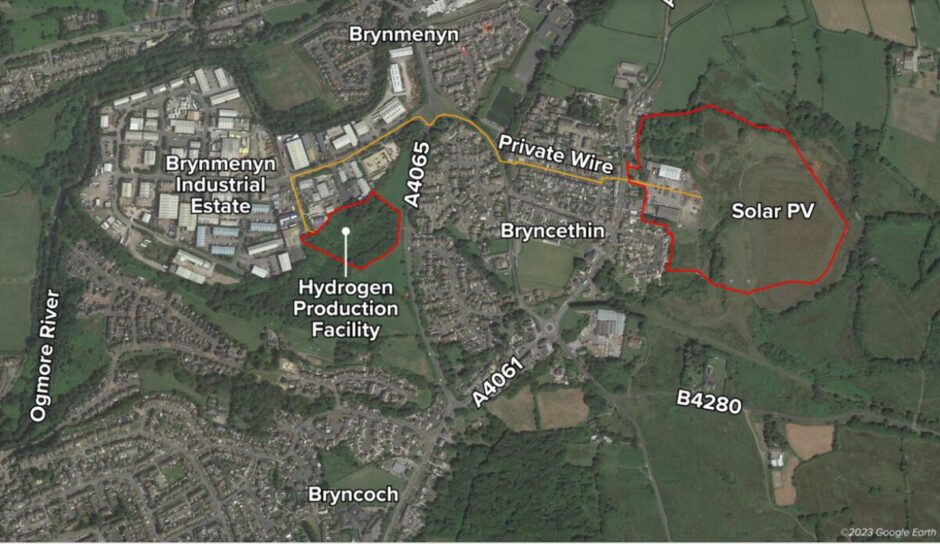A green hydrogen project in Wales has been dealt a blow by the UK’s health and safety watchdog which has refused to grant consent for hazardous substances over concern for the risk presented to the local population.
The proposed HyBont Bridgend green hydrogen project, which is being developed by a unit of Japan’s Marubeni in Wales, is on pause after the UK Health and Safety Executive (HSE) recommended against the granting of a hazardous substances consent.
This came days after it emerged that Bridgend County Borough Council (BCBC) officers had published their committee report on HyBont, recommending that planning permission for the project be granted subject to the holding direction from Welsh government being lifted. The council’s development control committee had been due to decide the project’s fate at a special meeting on October 17, but the meeting was postponed owing to the HSE’s recommendation being issued the day before.
The HSE’s decision related specifically to the storage of hazardous substances – in this instance hydrogen – at the project site, which is the Brynmenyn Industrial Estate near Bridgend.
The regulator assessed the risks to the local population from activities that would likely result from the granting of hazardous substances consent for HyBont.
In its letter to BCBC, the HSE said it had concluded that the risks to the surrounding population arising from the proposed operations at HyBont were sufficiently high to justify advising against the granting of Hazardous Substances Consent on safety grounds.
In an October 22 statement, Marubeni Europower said the HSE had subsequently clarified that this specifically related to the arrangement and management of “moveable storage containers” on the site – in this case, tube-trailer lorries that would transport hydrogen off the site to customers.
Marubeni said it had been in discussions with the HSE throughout the permitting and licensing process for HyBont and that it would be continuing to work with HSE and BCBC to ensure the project is built. In the meantime, however, all proposed site development and planning application processes have been paused while Marubeni works to address the HSE’s concerns.
The HyBont project entails a green hydrogen production and refuelling facility that would be partially powered by a solar farm built at Bryncethin. The hydrogen facility would include electrolyser modules of up to 6 MW higher heating value (HHV), up to 5 tonnes of above-ground hydrogen storage capacity, hydrogen compression, a hydrogen refuelling station and a substation.
Power generated by the Bryncethin solar farm would meet roughly a quarter of the project’s annual electricity needs, with the remaining power being sourced from the grid, via other renewable sources.
Cardiff Capital Region – a consortium of 10 local authorities in Southeast Wales, local businesses and other organisations – has agreed to buy the land on which the project would be located, but this is contingent on planning permission for both the hydrogen and solar plants being granted.
The project has seen strong local opposition, particularly from nearby residents, with the Residents and Businesses Against HyBont action group highlighting the fact that hydrogen would be stored within 40 metres of the nearest residential premises and even closer to the nearest business premises.
BCBC can still opt to go against the HSE’s recommendation and grant planning permission for HyBont, but doing so would likely strengthen local opposition to the project further still. The council has not commented publicly on the matter except to say that the development control committee’s special meeting had been postponed and that a new meeting date and a planned site visit would be announced soon.
Recommended for you



 © Supplied by Marubeni
© Supplied by Marubeni






